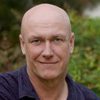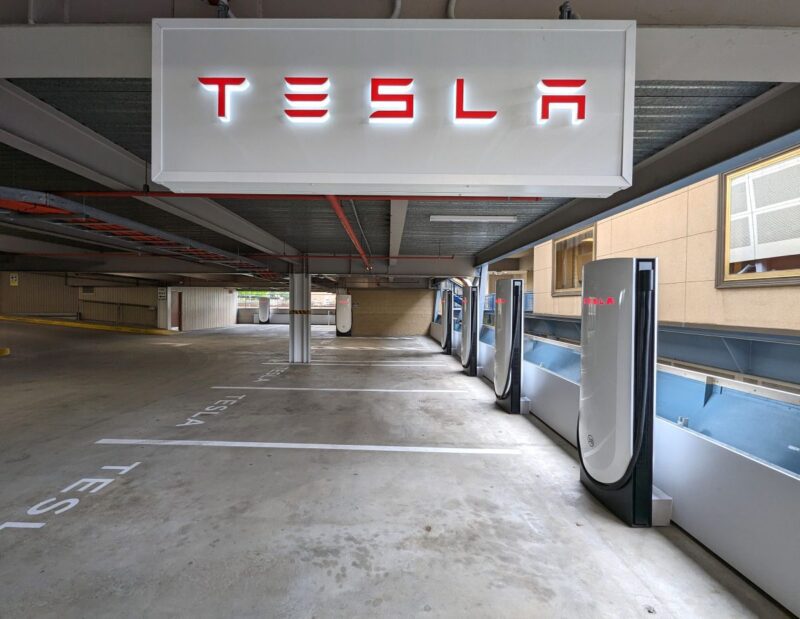Tesla has vowed to continue to expand its Supercharger network in Australia, and says will complete its current projects and participate in fast-charging programs being rolled out in NSW and Queensland.
Tesla stunned the EV world – and its own employees – with the mass sacking of all, or at least nearly all – of its global Supercharger team, part of major cost-cutting and restructuring program that began with global staff cuts of 10 per cent of its workforce earlier last month.
The news, which follows the financial collapse of Australian fast charging equipment provider Tritium, and problems with US-based Freewire, has raised concerns about the future growth of the EV charging network, particularly in Australia where it is finally catching up with the big growth in EV uptake in recent years.
In a rare statement responding to “concerns from our Tesla community”, Tesla said its Supercharger network is still core to its mission of accelerating the world’s transition to sustainable energy. It said fulfilling that mission also mean cutting costs and boosting efficiency.
“The Supercharger network will continue to be expanded,” Tesla said in the statement issued late Friday. “Projects currently in construction are continuing to be completed and put into operation.”
It said it will “continue to move forward with participating” in the NSW Fast Charging Grant Program and the Queensland Electric Vehicle Charging Infrastructure Scheme.
“Supercharger sites are continuing to be serviced and maintained by our team, with operational support being provided.” At around the same time, CEO Elon Musk tweeted that the company intended to spend $US500 million on expanding and upgrading the Supercharger network in 2024.
“Just to reiterate: Tesla will spend well over $500M expanding our Supercharger network to create thousands of NEW chargers this year. That’s just on new sites and expansions, not counting operations costs, which are much higher,” Musk said on X/Twitter.
According to Plugshare, there are more than 20 different Tesla charging sites around Australia that are marked as “coming soon”, but it is not possible to know for sure how many of these are actually committed. There have been reports that some site owners – in Australia and around the world – have already been told that their projects will not go ahead.
It is also not clear how many Tesla staff have been sacked in Australia as part of the restructuring program, but many have shared their regret and frustrations on LinkedIn, as have some of the businesses that were suppliers and contractors to the company.
“While we’re fortunate to have diversified revenue streams, supercharging has grown significantly for us over the past five years,” wrote Leigh Phillips, the director of LPG Electrical Services. “Despite the team’s closure, we remain optimistic.”
Most ex employees, however, were effusive about their time with the company.
“Earlier this week … I learned that my journey was coming to an end with the disbandment of the Tesla charging team. Although this isn’t exactly a fairytale ending, the last 4 and half have felt like one and I couldn’t be more thankful,” wrote Luke Henry.
“I admit today is one of those darkest day in the renewable industry but I still see the light in this,” wrote Yang Chen, another former Sydney-based employee.
But not everyone was looking on the bright side.
“What the @#$% just happened?” wrote Steven Hitchinson, the former head of the regional charging team in Canada.
“If you’re trying to apply logic or rationality to understand why Tesla’s entire charging team was vaporised, don’t waste your time. There is none. It is very difficult for the individuals who poured their hearts and souls into arguably Tesla’s most successful program.
“To all the site hosts, vendors, utilities, municipalities, contactors, and everyone else in Canada who is left confused and without any continuity, I’m sorry. Please know this is not in any way a reflection of the Canadian Charging team and we appreciate your support and the relationships that have been built over the years.”

Giles Parkinson is founder and editor of The Driven, and also edits and founded the Renew Economy and One Step Off The Grid web sites. He has been a journalist for nearly 40 years, is a former business and deputy editor of the Australian Financial Review, and owns a Tesla Model 3.

